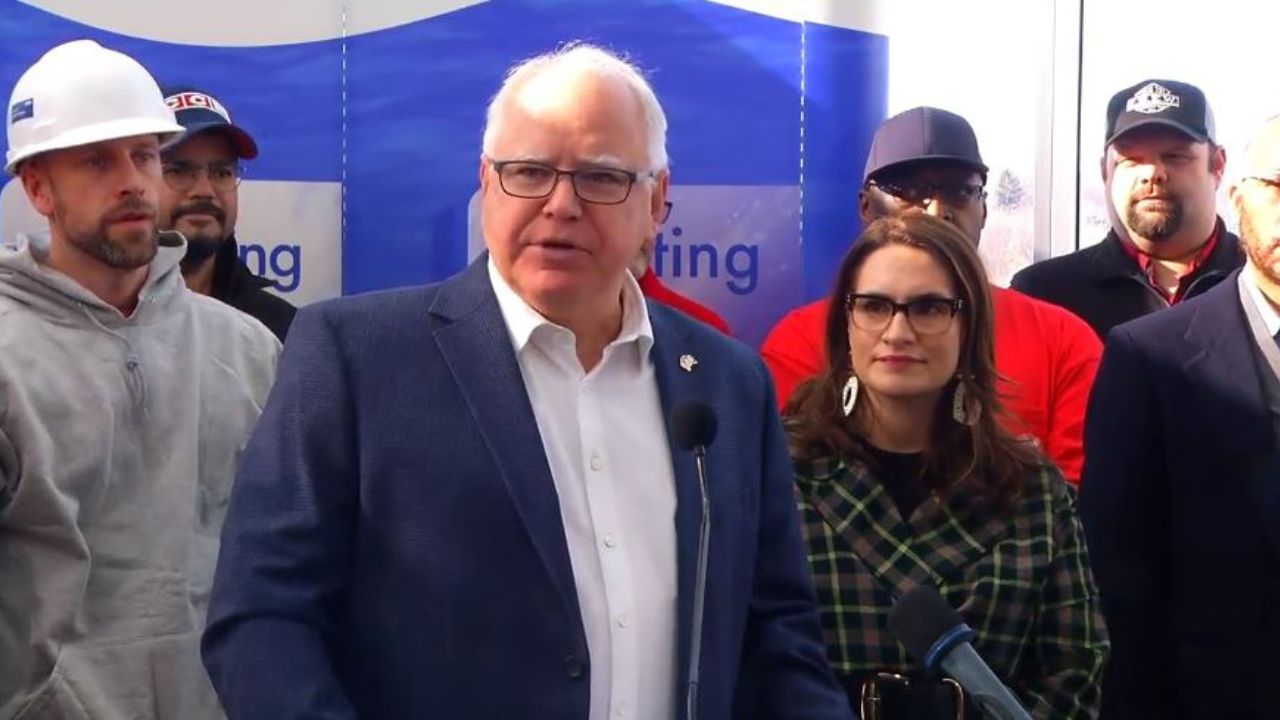Prisoners’ families ask Governor Walz for ‘Good Time Law’ timeline
[anvplayer video=”5189797″ station=”998128″]
(MRRA) – The Minnesota Rehabilitation and Reinvestment Act (MRRA) allows people to earn early release and supervision reductions by using their time well, increasing public safety and saving taxpayers money. Planned for the last three years, and passed in May, the law went into effect this August 1.
Yet there is ongoing controversy over its implementation, with those on supervision and with incarcerated loved ones demanding the good time they’ve already earned and the Department of Corrections (DOC) Commissioner saying they need 18-24 months to have policies in place.
At an August 16th press conference the Home for Good Coalition called on Governor Walz to step in and set a timeline for implementing supervision reductions and prison good time for thousands of Minnesotans. “We want to see the draft MRRA policies this month, supervision reductions by Thanksgiving, and prison time reductions starting Black History Month [2024]” said Stefanie Brown, a Home for Good organizer.
The DOC’s canceling a meeting with the community and refusing future meetings didn’t go unnoticed. “Governor Walz needs to step in and make sure the Commissioner follows the law, that he be an adult and come back to the table to talk with the community,” says Trina Murray, former Minnesota corrections officer, and mother of a son in Moose Lake Prison. The Coalition is asking to meet with the Governor as well.
The group is calling for the implementation of supervision reductions to 6700 new voters currently supervised by the DOC by this Thanksgiving. “With the election coming up, we want the Governor to give thousands of new voters, their families, and their parole officers something to be thankful for this holiday season,” says Stefanie Brown. “Safety means putting resources where they’re needed, not holding people who’ve demonstrated safety beyond what is necessary under the law.”

(FILE) Minnesota Governor. Tim Walz and Lt. Governor Peggy Flanagan announced their infrastructure plan at a water treatment facility in St. Paul on 1/26/2023. (Credit: KSTP)
But it’s not only about benefiting thousands of new voters – there are also over 1300 people in prison who should be considered for early release but will not be considered if the DOC delays as planned.
This worries Tracy Karlovich, whose loved one James Jordan has earned his way down to the minimum unit in Stillwater. “What happens to the minds of those 1300 people who could be released? Not getting them what they’ve already earned is a risk to their minds, to the officers, and the public.”
In a recent presentation, Commissioner Schnell was adamant that the DOC needs 18-24 months to implement the policy, yet Trina Murray, a former DOC employee, doesn’t believe him. “We can’t just keep punishing people when they have served their time. My son did his time, he turned himself in 16 years ago. He’s a visible example that you can change if you want to — but now his kids and community need him to come home”.
The Coalition plans to rally outside the Governor’s home at Eastcliff on September 16th in order to emphasize the need for timely action to implement the MRRA.
The Twin Cities Incarcerated Workers Organizing Committee is a union of prisoners, ex-prisoners, families, and communities working to transform the justice system in MN. They host the Home for Good Coalition to increase the safety and use of Minnesota’s early release programs.